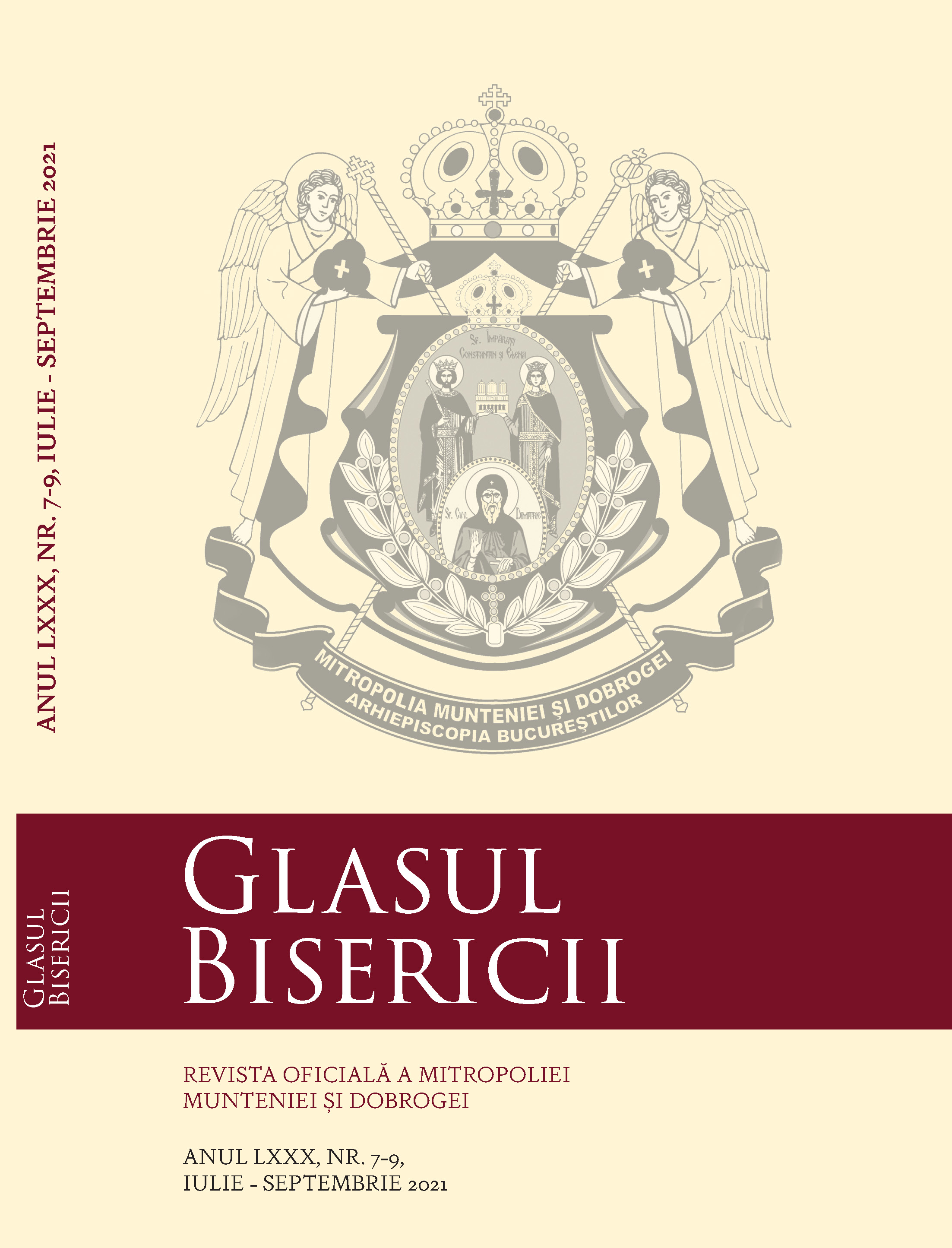Modul de primire a convertiților romano-catolici în Biserica Ortodoxă, cu referire specială la hotărârile Sinoadelor din 1484 (Constantinopol), 1755 (Constantinopol) și 1667 (Moscova)
The Manner of Reception of Roman Catholic Converts into the Orthodox Church with Special Reference to the Decisions of the Synods of 1484 (Constantinople), 1775 (Constantinople) and 1667 (Moscow)
Author(s): George DragasContributor(s): Radu Hagiu (Translator)
Subject(s): Christian Theology and Religion, Theology and Religion, Pastoral Theology, Eastern Orthodoxy, Other Christian Denominations
Published by: Arhiepiscopia Bucureștilor
Keywords: baptism; immersion; affusion; aspersion; chrismation; akribeia; economy; synod; council; doctrine; canons; conversion; heterodox; Roman Catholicism; Orthodox Church;
Summary/Abstract: The issue of reception into the Orthodox Church of the Roman Catholics since the 11th century was marked, over time, by a controversy regarding the manner of reception and, respectively, the principles of implementation of the Canon Law in this context: (1) by (re)baptizing (the principle of akribeia) or (2) by chrismation and libellus of faith, or only by libellus (the principle of economy). Customary for 11th-12th centuries, recorded on a individual level, was the (re)baptism of the Latins, on the main basis of their deviation from the Apostolic manner of performing this Mystery. Considering that in West, at that time, three types of Baptism co-existed (by triple immersion, by single immersion and by affusion / aspersion), the economical custom of chrismating the Latins baptized by triple immersion appears by the end of 14th century. The Synod of Constantinople in 1484 records at a conciliar level, for the first time, an (economical) manner of reception of the Latins, by chrismation and libellus of faith, without issuing any reference to the validity or invalidity of the Latin baptism. Another Synod of Constantinople, summoned in 1755 because of the Western proselytism, decides a return to the principle of akribeia in receiving of the Roman Catholics, by (re)baptism, considering the breaking of the Western type of Baptism with the Apostolic practice (after the sanction of aspersion by the Council of Trent in 1545-1563). Although the synodal decree of 1755 continued to be normative in 18th-19th centuries, it didn’t mean a pan-Orthodox consensus was acquired: in Russia, a statement of the Synod of Moscow in 1620 demanding the (re)baptism of the Roman and Greek Catholics was reversed at the Synod of Moscow in 1667, which decreed the use of economy, a decision remaining in force until nowadays; in Middle East, the Antiochian Throne practiced, since the end of 19th century, the chrismation of the Roman Catholics and Melchites. The lack of consensus in this matter was acknowledged in a Patriarchal and Synodical Encyclical issued in 1875, whereby the manner of reception of Roman Catholics is left to the judgement of the local Bishop. While a pan-Orthodox agreement wasn’t yet reached in this regard, we may consider that the above-mentioned Encyclical already presents the solution: it is not uniformity, but the freedom which characterizes the Orthodox position, determined by the pastoral and missionary necessities of each historical period. The two principles of akribeia and oikonomia, which lay behind the different manners of receiving Heterodox converts, are asymmetric to each other, without jeopardizing the canonical integrity of the Orthodox Church, based on the ancient tradition of the Apostles and the Fathers. Translated from English by Radu Hagiu.
Journal: Glasul Bisericii
- Issue Year: 80/2021
- Issue No: 7-9
- Page Range: 181-230
- Page Count: 50
- Language: Romanian
- Content File-PDF

